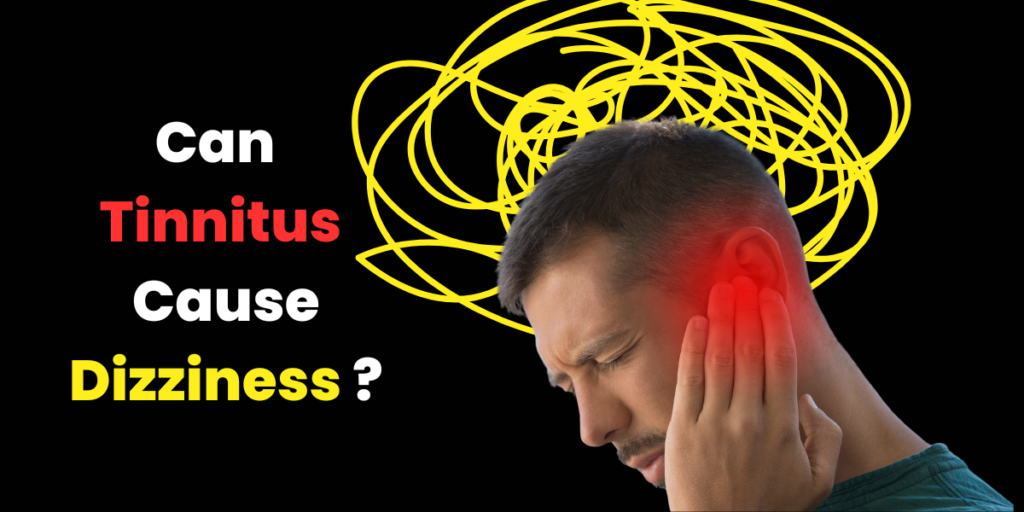
Can Tinnitus Cause Dizziness?
Tinnitus is a condition that many people have heard of, but not everyone understands what it truly entails. If you’ve been experiencing ringing or buzzing in your ears, you might be wondering: can tinnitus cause dizziness? Let’s explore this connection and provide some helpful insights!
Understanding Tinnitus
First, let’s break down what tinnitus is. Tinnitus is often described as hearing sounds that aren’t actually present, such as ringing, buzzing, or hissing. It’s a common issue, affecting millions of people worldwide. While it’s not a disease itself, it can be a symptom of underlying conditions like hearing loss, ear injuries, or even issues with the circulatory system.
The Link Between Tinnitus and Dizziness
Now, onto the big question: can tinnitus cause dizziness? The short answer is yes, in some cases, tinnitus can be linked to dizziness. But let’s dive a bit deeper into why this happens.
The Inner Ear Connection
Your inner ear is responsible for both hearing and balance. Tinnitus often originates in the inner ear, where tiny hair cells are responsible for sending sound signals to your brain. If these cells are damaged, they can send confusing signals, leading not only to those annoying sounds but also to issues with balance, resulting in feelings of dizziness.
Underlying Conditions
In many cases, tinnitus and dizziness can share a common cause. Conditions like Ménière’s disease, vestibular disorders, or even certain ear infections can lead to both symptoms. If you’re experiencing dizziness along with your tinnitus, it’s essential to consult a healthcare professional to rule out any serious underlying conditions.
Recognizing Symptoms
If you’re wondering if your tinnitus could be causing your dizziness, here are some symptoms to watch for:
- Ringing, buzzing, or hissing sounds in the ears
- Feeling off-balance or lightheaded
- Nausea or vomiting
- Difficulty concentrating
If you notice these symptoms together, it’s crucial to seek medical advice to determine the best course of action.
Managing Tinnitus and Dizziness
While there’s no one-size-fits-all solution for tinnitus, there are various ways to manage the symptoms, including dizziness. Here are some actionable steps you can take:
1. Consult a Professional
Your first step should always be to consult with a healthcare professional. They can help identify the cause of your tinnitus and dizziness and recommend appropriate treatments.
2. Hearing Aids
If your tinnitus is linked to hearing loss, using hearing aids may help improve your situation. They amplify external sounds, which can make the ringing less noticeable.
3. Cognitive Behavioral Therapy (CBT)
CBT is a type of therapy that can help you manage the emotional aspects of tinnitus. By learning coping strategies, you may find it easier to deal with the stress and anxiety that can accompany the condition.
4. Stress Management Techniques
Stress can worsen tinnitus and dizziness. Incorporating relaxation techniques like meditation, deep breathing exercises, or yoga into your daily routine can help reduce symptoms.
5. Supplements
Many people find relief through natural supplements. One product worth considering is Quietum Plus. This supplement is designed specifically to support ear health and may help reduce the symptoms of tinnitus. It’s made from natural ingredients that promote better hearing and overall ear function. If you’re looking for a holistic approach to managing tinnitus and its potential side effects like dizziness, Quietum Plus might be a good addition to your routine.
Quietum Plus
Unlock the potential of your ear health with Quietum Plus!
This natural supplement is specifically formulated to support your hearing and reduce the symptoms of tinnitus. Embrace clearer sounds and a calmer mind—take the first step toward relief today! Explore Quietum Plus and discover how it can enhance your quality of life.

FAQ About Can Tinnitus Cause Dizziness
Q1: Is dizziness a common symptom of tinnitus?
Yes, while not everyone with tinnitus experiences dizziness, they can occur together, especially if there’s an underlying condition affecting the inner ear.
Q2: What should I do if I experience both tinnitus and dizziness?
It’s best to consult with a healthcare professional to identify the cause and appropriate treatment options.
Q3: Can lifestyle changes help with tinnitus-related dizziness?
Absolutely! Stress management, a healthy diet, and regular exercise can positively affect your symptoms.
Q4: Are there any medications for tinnitus?
While there is no specific medication for tinnitus, doctors may prescribe treatments for underlying conditions or suggest therapies that help alleviate symptoms.
Q5: How can Quietum Plus help with tinnitus?
Quietum Plus is formulated to support ear health and may help reduce tinnitus symptoms by promoting better hearing and overall ear function.
Conclusion
In conclusion, if you’re dealing with tinnitus and experiencing dizziness, know that you’re not alone. Understanding the relationship between these two symptoms can help you take proactive steps to manage your health. Always consult a healthcare professional for personalized advice, and consider incorporating natural supplements like Quietum Plus into your wellness routine. Taking care of your ear health is essential, and the right approach can lead to a better quality of life.
